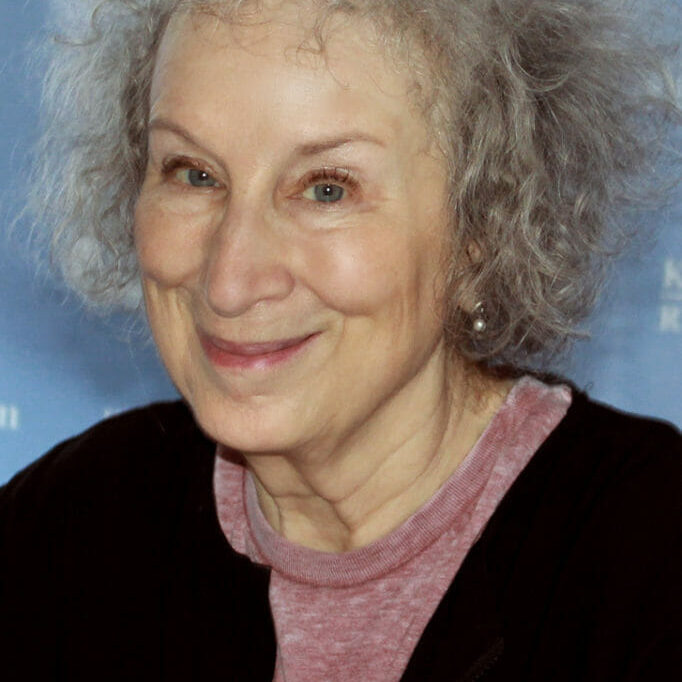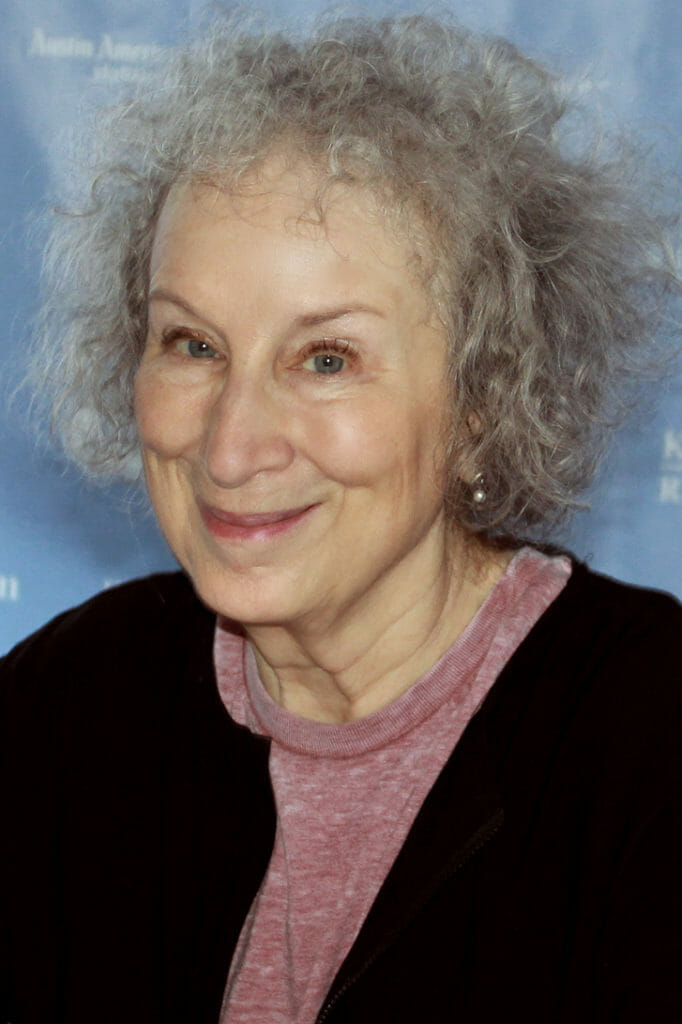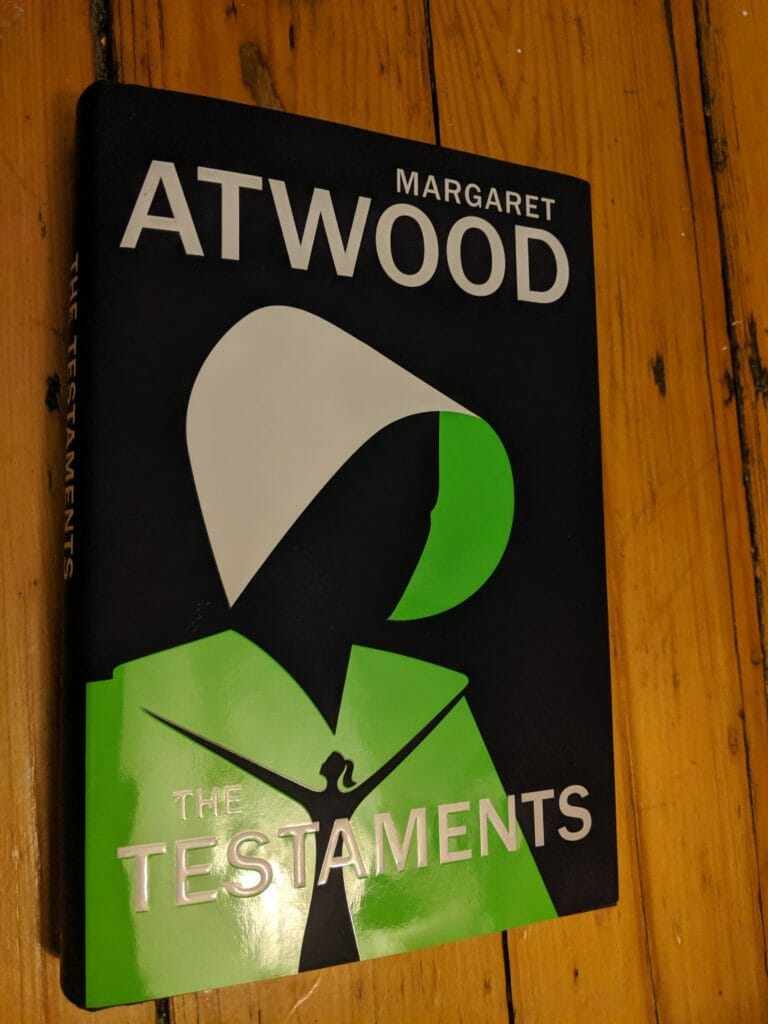
Margaret Atwood speaks at the Halifax Central Library
The renowned author came to promote her new book,The Testaments
The first impression you get from seeing Margaret Atwood in person is the contrast between her literal size and the size of her monumental reputation in literature.
On Oct. 3, Atwood was dwarfed by the podium at her sold-out event at the Halifax Central Library. The event was held to promote Atwood’s new book The Testaments — the sequel to 1985’s The Handmaid’s Tale, which is currently famous for its TV adaptation on Hulu starring Elisabeth Moss.
Paul O’Regan Hall typically holds 350 people, but for the buzz of the event, the event coordinators pushed the capacity to 400 according to Kasia Morrison, the marketing and communications coordinator for the Central Library.

A memorable event
The hall was an ocean of middle-aged women decked out in green and blue to
Librarian Jocelyn Covert, who introduced Atwood, spoke reverentially of the author.
“We’re so lucky to have her to shine a light on our goodness, to call out our cruelty, and to bear witness, in her inimitable way, to our humanity,” Covert said before Atwood took the stage.
During the interview, Atwood seemed aware of her cult following. The interviewer, Alexander MacLeod, an English professor at Saint Mary’s University, mentioned the “niche, handicraft vein” of Handmaid’s Tale-related crafts and costumes. Atwood recalled seeing her fans protest against a highly sexualized Handmaid’s Tale Halloween costume available online. She called these fans her “enforcers.”
At one point during the interview, MacLeod began pushing the question of “southern politics” in relation to The Testaments.
Atwood simply replied, “Why don’t we just come out with it?” and proceeded to speak directly about American president Donald Trump. She continued by asking MacLeod, “what else did you want me to say about it?” when MacLeod brought up impeachment.

Atwood and activism
During the interview, Atwood seemed bent on separating her activism from her fiction.
According to her website, Atwood is an honorary president of the Rare Bird Club through BirdLife International — a group of non-profit organizations striving to conserve birds and their habitats. She was also the president of The Writer’s Union of Canada, which advocates for Canadian writers and their issues. These causes are only tangentially related to women’s rights. Nonetheless, her readers seem determined to interpret her as an authoritative feminist voice.
Ali Sharer and Rae Brown, two attendees who won tickets to the talk through the Central Library, share this opinion, but for different reasons. When asked about the feminist reading of Atwood’s novels, Brown said
Perhaps Sharer is right. Is reading Atwood’s works as essentially feminist unproductive? The reality is that women come from all kinds of racial, socio-economic, health and sexual backgrounds. These backgrounds don’t reflect themselves in Atwood’s works. The characters in Handmaid’s Tale are race-less, classless and heterosexual, but flesh-and-blood women do not have the privilege of experiencing the world from this “purely” feminine perspective. Women have intersecting identities that Atwood does not reflect on in her works.
In 2017, when the Texas state senate tried to pass anti-abortion legislation, a group of women protested by sitting in the senate chambers in Handmaid’s Tale-inspired outfits, reported Slate magazine. These protestors — and the ones who took up the trend in the proceeding months — were overwhelmingly white, and so was the Paul O’Regan Hall on the night of Atwood’s talk.
A woman and a literary icon
While she didn’t shy away from the podium during the Central Library talk, Atwood seemed more intent on talking about her writing process, her environmental activism and her thoughts on totalitarianism more than she was on contemporary feminism.
Atwood remains a literary icon. However, maybe instead of reading her as a uniquely authoritative feminist commentator (a role given to her by white feminists), it would be better to keep in mind the flesh-and-blood woman in Paul O’Regan Hall. This woman speaks with irony and honesty; she does not claim her opinions are facts and she never claims that her opinions are universal. She is merely one exceptionally eloquent and observant person commenting on her experience of the world around her.






